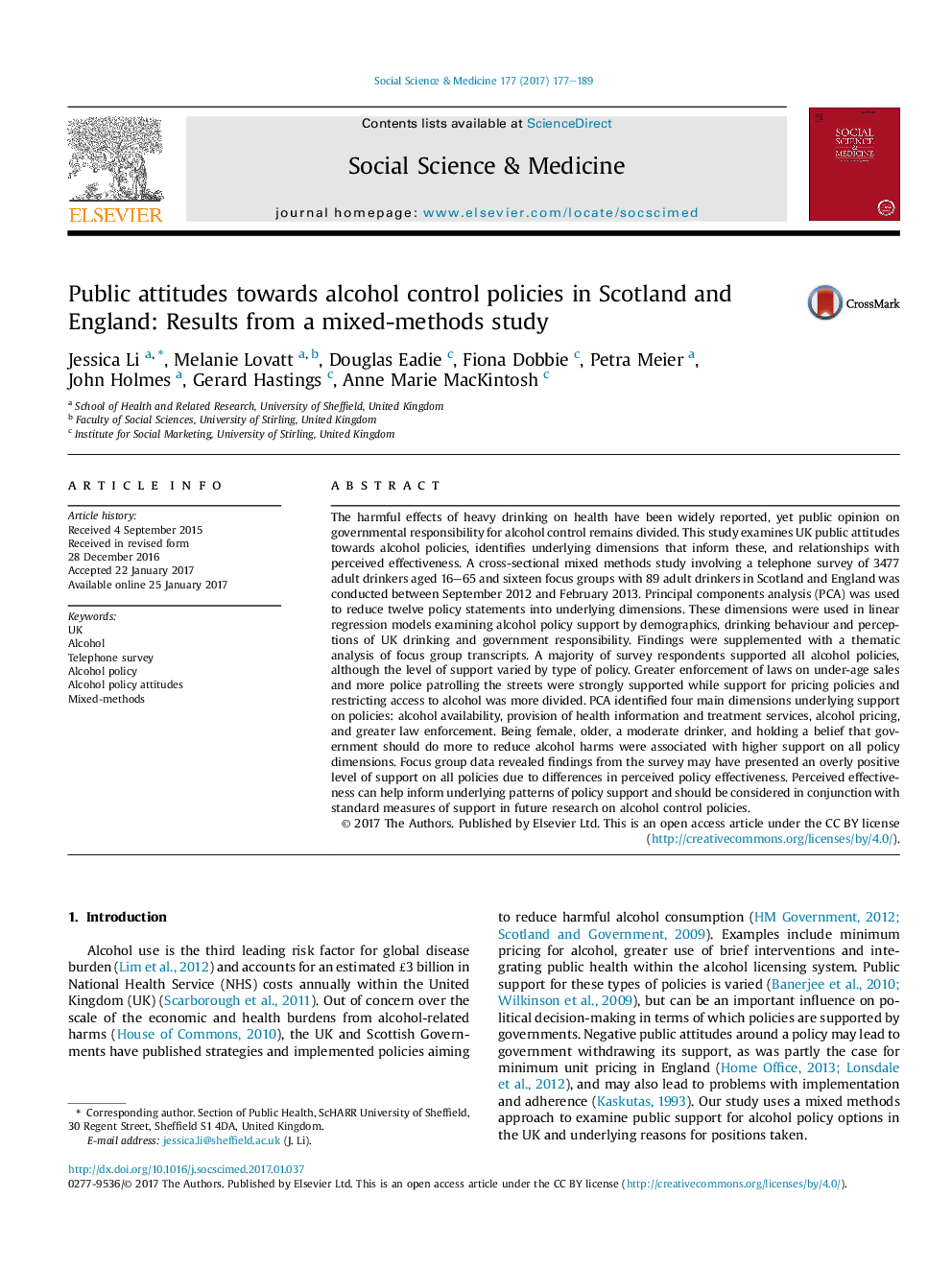| کد مقاله | کد نشریه | سال انتشار | مقاله انگلیسی | نسخه تمام متن |
|---|---|---|---|---|
| 5046724 | 1475992 | 2017 | 13 صفحه PDF | دانلود رایگان |
- UK alcohol policies restricting access to alcohol via pricing are the least popular.
- Females and those who are older are more supportive of restrictive alcohol policies.
- Perceived effectiveness should be considered when measuring alcohol policy support.
- Mixed methods approaches are useful to strengthen understandings of policy support.
The harmful effects of heavy drinking on health have been widely reported, yet public opinion on governmental responsibility for alcohol control remains divided. This study examines UK public attitudes towards alcohol policies, identifies underlying dimensions that inform these, and relationships with perceived effectiveness. A cross-sectional mixed methods study involving a telephone survey of 3477 adult drinkers aged 16-65 and sixteen focus groups with 89 adult drinkers in Scotland and England was conducted between September 2012 and February 2013. Principal components analysis (PCA) was used to reduce twelve policy statements into underlying dimensions. These dimensions were used in linear regression models examining alcohol policy support by demographics, drinking behaviour and perceptions of UK drinking and government responsibility. Findings were supplemented with a thematic analysis of focus group transcripts. A majority of survey respondents supported all alcohol policies, although the level of support varied by type of policy. Greater enforcement of laws on under-age sales and more police patrolling the streets were strongly supported while support for pricing policies and restricting access to alcohol was more divided. PCA identified four main dimensions underlying support on policies: alcohol availability, provision of health information and treatment services, alcohol pricing, and greater law enforcement. Being female, older, a moderate drinker, and holding a belief that government should do more to reduce alcohol harms were associated with higher support on all policy dimensions. Focus group data revealed findings from the survey may have presented an overly positive level of support on all policies due to differences in perceived policy effectiveness. Perceived effectiveness can help inform underlying patterns of policy support and should be considered in conjunction with standard measures of support in future research on alcohol control policies.
Journal: Social Science & Medicine - Volume 177, March 2017, Pages 177-189
